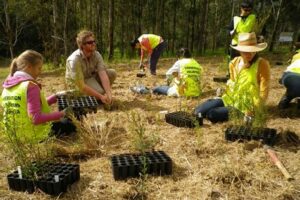Table of Contents
Returned Peace Corps Volunteer Jobs are ideal for individuals who have completed their service in the Peace Corps and are seeking employment opportunities. These jobs provide a platform for former volunteers to utilize their skills, knowledge, and experience gained during their service in various fields. Explore rewarding career options that align with your passion for global development, cultural exchange, and making a positive impact on communities around the world.
Returned Peace Corps Volunteer Jobs offer a unique opportunity for individuals who have completed their service to continue making a meaningful impact in their careers. With a wealth of cross-cultural experience and a strong sense of global citizenship, these volunteers possess the skills and knowledge needed to excel in a variety of professional fields. Whether it’s working in international development, education, public health, or environmental conservation, these individuals bring a unique perspective and a deep commitment to social change. Transitioning from the Peace Corps to the professional world is seamless for these volunteers, as they are equipped with the necessary tools to navigate complex challenges and foster positive change. With their invaluable experience and dedication, Returned Peace Corps Volunteers are a valuable asset to any organization seeking to make a difference on a global scale.
The Value of Returned Peace Corps Volunteer (RPCV) Experience
Returned Peace Corps Volunteers (RPCVs) possess a unique set of skills and experiences that make them highly sought after in the job market. Their time spent living and working in different cultures, adapting to challenging environments, and developing cross-cultural competencies equips them with valuable attributes that many employers look for. RPCVs are known for their adaptability, resilience, cultural sensitivity, language proficiency, and ability to work effectively in diverse teams.
1. International Development Organizations
RPCVs often find rewarding careers in international development organizations such as USAID, World Bank, UNICEF, and various non-profit organizations. These organizations value the firsthand knowledge and understanding of the challenges faced in developing countries that RPCVs bring to the table. They may work in areas like project management, program coordination, grant writing, or community development.
2. Government Agencies
Government agencies at both the federal and state levels also recognize the value of RPCV experience. RPCVs may find opportunities in agencies such as the Department of State, Department of Defense, Peace Corps Headquarters, or other government departments involved in international relations and diplomacy. Their global perspective and intercultural skills make them assets in roles related to foreign affairs, public diplomacy, or international policy.
3. Education and Teaching
Many RPCVs choose to pursue careers in education and teaching. Their cross-cultural understanding and language proficiency make them ideal candidates for teaching positions, both domestically and abroad. Some RPCVs become English as a Second Language (ESL) instructors, while others work in international schools or educational exchange programs.
4. Nonprofit and Social Services
RPCVs are often drawn to careers in nonprofit organizations and social services, driven by their desire to make a positive impact on communities. They may work in areas such as community development, refugee assistance, youth mentoring, or public health initiatives. Their experience living and working in resource-limited settings allows them to bring unique perspectives and solutions to the challenges faced by these organizations.
5. International Business
RPCVs with strong cross-cultural skills and language proficiency often find success in international business roles. Their ability to navigate different cultural norms and customs, communicate effectively across languages, and adapt to diverse business environments is highly valued. They may work in areas such as international sales, marketing, business development, or project management for companies with global operations.
6. Environmental and Sustainability Organizations
Given their exposure to environmental challenges in various parts of the world, many RPCVs are passionate about environmental conservation and sustainability. They may work in organizations focused on environmental protection, sustainable development, climate change mitigation, or renewable energy. Their firsthand experiences witnessing the impact of environmental issues make them valuable contributors to these causes.
7. Public Health and Healthcare
RPCVs who have worked in healthcare or public health sectors during their Peace Corps service often continue to pursue careers in these fields. They may work in areas such as global health, public health research, healthcare administration, or international health policy. Their experience in resource-limited settings and their ability to adapt to challenging healthcare environments is highly valuable to organizations working in these areas.
8. Communications and Media
Many RPCVs possess excellent communication skills, gained through their experiences in cross-cultural settings and their ability to bridge language barriers. This makes them well-suited for careers in communications and media. They may work as journalists, public relations specialists, content creators, or intercultural communication consultants, leveraging their understanding of diverse audiences and cultural nuances.
9. Entrepreneurship and Social Entrepreneurship
RPCVs often possess a strong entrepreneurial spirit, developed through their experiences of adapting and finding creative solutions in challenging environments. Some choose to start their own businesses, leveraging their cross-cultural competencies and networks built during their Peace Corps service. Others may join social entrepreneurship ventures focused on addressing social or environmental issues.
10. Higher Education and Research
RPCVs who have a passion for academia and research may pursue careers in higher education institutions. They may work as professors, researchers, or administrators in areas related to international studies, anthropology, development studies, or other disciplines where their firsthand experiences and intercultural understanding are valued.
In conclusion, the skills and experiences acquired by Returned Peace Corps Volunteers (RPCVs) make them highly marketable in various fields. Their adaptability, resilience, cross-cultural competencies, and language proficiency are assets sought after by employers across different sectors. Whether they choose careers in international development, government, education, nonprofit organizations, business, or any other field, RPCVs bring a unique perspective and a valuable skill set to their roles.
Introduction
As Peace Corps volunteers return from their service experiences, they often embark on a new journey to find meaningful employment that aligns with their skills and values. Leveraging their unique background and cross-cultural experiences, many Returned Peace Corps Volunteers (RPCVs) find themselves in diverse and fulfilling professional roles. In this article, we will explore various job opportunities pursued by RPCVs and highlight the invaluable skills they bring to the table.
1. International Development and Non-Profit Organizations
Many RPCVs find their calling in international development and non-profit organizations, where they can further contribute to the communities they served during their Peace Corps service. Their firsthand experience in grassroots initiatives, cultural adaptation, and project management makes them valuable assets in organizations working towards sustainable development and social change.
2. Government and Diplomatic Roles
Drawing on their intercultural competencies, language skills, and community integration experience, RPCVs often venture into government and diplomatic roles both domestically and internationally. Whether working in foreign affairs, international relations, or public service, their insights into global perspectives and empathy for diverse populations make them effective collaborators in shaping international policies and fostering meaningful cross-cultural relationships.
3. Education and Teaching
Given their extensive experience as teachers and community educators during Peace Corps service, it is not surprising that many RPCVs pursue career paths in education. Whether as teachers, administrators, or curriculum developers, their ability to navigate multicultural classrooms, bridge communication gaps, and adapt to varying educational systems make them highly sought-after professionals in the field.
4. Social Services and Advocacy
RPCVs often find themselves gravitating towards social services and advocacy work, applying their firsthand understanding of community needs, inclusivity, and collaboration. Leveraging their fluency in local languages, knowledge of cultural dynamics, and understanding of systemic challenges, they make significant contributions to organizations promoting social justice, equity, and sustainable community development.
5. International Business and Entrepreneurship
With their ability to navigate diverse cultural contexts and tap into global networks, many RPCVs thrive in international business and entrepreneurship. Their adaptability, communication skills, and deep understanding of local market dynamics make them effective collaborators and business leaders in industries such as global trade, sustainable tourism, international consulting, and social entrepreneurship.
6. Environmental Conservation and Sustainability
For those RPCVs who developed a passion for environmental conservation during their service, careers in sustainability and environmental initiatives become a natural path. As advocates for preserving natural resources, enhancing biodiversity, and implementing sustainable practices, their experience in community mobilization and environmental education contributes immensely to organizations dedicated to safeguarding our planet.
7. Public Health and Global Health Initiatives
Having witnessed firsthand the healthcare challenges faced by communities across the world, many RPCVs channel their experiences into careers in public health and global health initiatives. Their familiarity with community-based health education, disease prevention strategies, and cross-cultural understanding make them invaluable in organizations working towards addressing global health disparities and promoting public well-being.
8. Media, Communications, and Cultural Exchange
RPCVs possess strong storytelling abilities, intercultural communication skills, and the capacity to bridge cultural divides, making them well-suited for careers in media, communications, and cultural exchange. Whether as reporters, editors, documentary filmmakers, or cultural exchange coordinators, their unique perspectives and rich experiences contribute towards fostering global understanding and promoting intercultural dialogue.
Conclusion
Returned Peace Corps Volunteers bring a wealth of invaluable skills, experiences, and perspectives to the professional world. Through diverse career paths such as international development, government roles, education, social services, business, environmental conservation, public health, and media, they continue their commitment to global citizenship and making a positive impact in their communities. With their unique background, RPCVs are well-equipped to pursue fulfilling careers that uphold the ideals of peace, cultural understanding, and sustainable development.
In today’s globalized world, Returned Peace Corps Volunteers (RPCVs) bring a unique set of skills and experiences that make them highly valuable candidates for a wide range of jobs. The Peace Corps program provides volunteers with the opportunity to live and work in communities around the world, immersing themselves in different cultures and tackling challenging projects. This experience equips RPCVs with a diverse skill set and a global perspective, making them well-suited for various professional roles.
Employers who hire RPCVs can benefit from their international experience and cultural competence. Here are several key reasons why hiring a Returned Peace Corps Volunteer can be advantageous:
- Adaptability: Serving in the Peace Corps requires flexibility and adaptability. RPCVs have demonstrated their ability to thrive in unfamiliar and challenging environments, adjusting to new customs, languages, and living conditions. This adaptability is highly valuable in today’s ever-changing and dynamic workplaces.
- Cross-Cultural Understanding: Living and working in a foreign country provides RPCVs with a deep understanding of different cultures and perspectives. This firsthand knowledge enables them to effectively navigate cross-cultural interactions and work collaboratively with colleagues from diverse backgrounds.
- Language Proficiency: Many Peace Corps volunteers acquire proficiency in one or more foreign languages during their service. This language competency can be a significant asset for employers who operate in global markets or have international clients. RPCVs can serve as valuable language resources and bridge communication gaps.
- Project Management Skills: Peace Corps volunteers often take on leadership roles and manage complex projects in resource-constrained settings. They develop strong project management skills through planning, organizing, and executing initiatives to address community needs. RPCVs can bring these skills to the workplace, ensuring efficient project completion and effective team coordination.
- Resilience and Problem-Solving: Serving in the Peace Corps requires resilience in the face of challenges and the ability to find creative solutions. RPCVs have firsthand experience overcoming obstacles in unfamiliar environments, honing their problem-solving abilities. This resilience and adaptability make them valuable assets in workplaces that demand innovative thinking and the ability to navigate adversity.
- Global Perspective: Living abroad and experiencing different cultures broadens an individual’s perspective on global issues. RPCVs often develop a deep understanding of social, economic, and environmental challenges faced by communities worldwide. This global perspective can contribute to organizations’ strategic planning, international development initiatives, and corporate social responsibility efforts.
In conclusion, hiring Returned Peace Corps Volunteers brings numerous advantages to organizations. Their unique skill set, adaptability, cross-cultural understanding, language proficiency, project management skills, resilience, and global perspective make them highly sought-after candidates. By welcoming RPCVs into their workforce, employers can benefit from their diverse experiences and contribute to fostering a more globally aware and inclusive work environment.
Thank you for visiting our blog and taking the time to learn about Returned Peace Corps Volunteer (RPCV) jobs. We understand that transitioning back to the professional world after serving in the Peace Corps can be challenging, and we are here to support you on this journey. Our organization is dedicated to helping RPCVs find meaningful employment that aligns with their skills, experiences, and passions. In this closing message, we would like to highlight some key takeaways from this article and provide you with valuable resources to assist you in your job search.
Firstly, we want to emphasize the unique qualities and strengths that RPCVs possess. Your time in the Peace Corps has equipped you with a diverse set of skills, such as cross-cultural communication, adaptability, problem-solving, and leadership. These skills are highly valued by employers in various fields, including international development, non-profit organizations, government agencies, and more. By highlighting these strengths in your job applications and interviews, you can showcase the value you bring to the table as an RPCV.
Secondly, networking plays a crucial role in finding job opportunities as an RPCV. The Peace Corps community is vast and supportive, and there are many resources available to help you connect with fellow RPCVs and professionals in your desired field. Reach out to local RPCV groups, attend networking events, and utilize online platforms specifically designed for RPCVs seeking employment. By building relationships and tapping into this network, you can uncover hidden job opportunities and gain valuable insights and advice from those who have navigated similar career paths.
Lastly, we understand that the job search process can sometimes feel overwhelming. That’s why we recommend exploring additional resources to enhance your job search strategy. There are websites and job boards specifically tailored to RPCVs, where you can find job listings, career advice, and guidance on resume and cover letter writing. Additionally, consider reaching out to career counselors or job placement services that specialize in supporting RPCVs. These professionals can provide personalized guidance and support to help you navigate the job market successfully.
Once again, we appreciate your visit to our blog, and we hope that the information provided here has been insightful and helpful. Remember, as an RPCV, you have a unique set of skills and experiences that make you a valuable asset to employers. With the right strategies, resources, and support, you can find a rewarding career that allows you to continue making a positive impact on the world. Best of luck in your job search, and we are here to assist you every step of the way.
Video Returned Peace Corps Volunteer Jobs
Returned Peace Corps Volunteer Jobs: People Also Ask
What job opportunities are available for Returned Peace Corps Volunteers?
Returned Peace Corps Volunteers (RPCVs) have a wide range of job opportunities available to them. Some popular options include working in international development organizations, non-profit organizations, government agencies, education and teaching, healthcare, and environmental conservation. RPCVs often possess valuable skills such as cross-cultural communication, language proficiency, adaptability, and community engagement, making them strong candidates for various roles.
How can Returned Peace Corps Volunteers find jobs?
RPCVs can explore various avenues to find job opportunities. Some effective strategies include:
- Utilizing the Peace Corps network and resources: Connecting with fellow RPCVs, attending alumni events, and utilizing online platforms specifically designed for RPCVs can help in finding job leads.
- Networking: Expanding professional networks by attending industry conferences, job fairs, and connecting with professionals in relevant fields.
- Resume and cover letter preparation: Tailoring resumes and cover letters to highlight relevant Peace Corps experiences, skills, and achievements.
- Job search websites: Utilizing job search engines and websites that specialize in international development or non-profit work.
- Volunteer work: Gaining additional experience through volunteering with organizations related to their field of interest.
Are there any specific resources or programs for Returned Peace Corps Volunteers seeking jobs?
Yes, there are several resources and programs specifically designed to assist RPCVs in finding jobs. The Peace Corps Career Center provides access to job boards, career counseling, and networking opportunities. Additionally, there are organizations like the National Peace Corps Association (NPCA) that offer career services, mentorship programs, and job search support to RPCVs.
What skills do Returned Peace Corps Volunteers possess that are valuable in the job market?
RPCVs develop a wide range of skills during their Peace Corps service, making them valuable assets in the job market. These skills include:
- Cross-cultural communication and adaptability
- Language proficiency
- Problem-solving and critical thinking
- Leadership and teamwork
- Project management
- Community engagement and relationship building
These skills are highly sought after by employers, particularly those operating in international, non-profit, or community development sectors.
How can Returned Peace Corps Volunteers leverage their experience during job interviews?
RPCVs can effectively leverage their Peace Corps experience during job interviews by:
- Highlighting specific projects and achievements from their Peace Corps service that relate to the job requirements
- Describing how they overcame challenges in a cross-cultural environment
- Discussing their ability to work effectively in diverse teams and communities
- Emphasizing their language proficiency and cultural sensitivity
- Sharing examples of their problem-solving and leadership skills gained during their Peace Corps service
By showcasing these experiences and skills, RPCVs can demonstrate their unique qualifications and suitability for the position.






